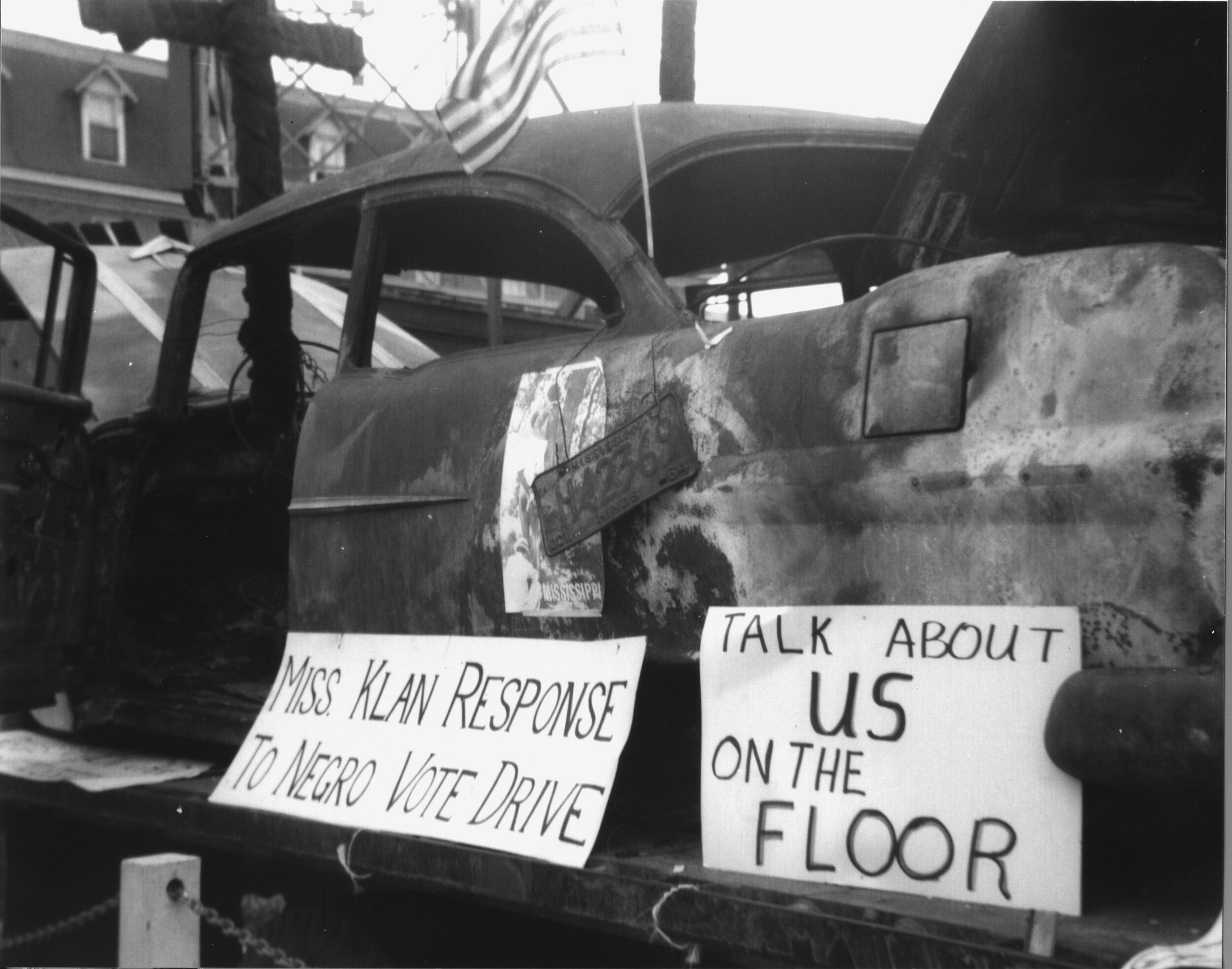“Is This America?” 50 Years Ago Sharecroppers Challenged Mississippi Apartheid, LBJ, and the Nation
Reading by Julian Hipkins III and Deborah Menkart
The MFDP brought this burned car to Atlantic City to show the delegates and press at the Demcratic Convention how Black people in Mississippi were treated when they tried to register to vote. © 1964 Jo Freeman
In 1964, Mississippi sharecropper Fannie Lou Hamer gripped the nation with her televised testimony of being forced from her home and brutally beaten (suffering permanent kidney damage) for attempting to exercise her constitutional right to vote.
“Is this America, the land of the free and the home of the brave, where … our lives be threatened daily because we want to live as decent human beings?” she asked the credentials committee at the Democratic National Convention in Atlantic City, New Jersey.
Hamer had arrived in Atlantic City on a bus from Mississippi with more than 60 sharecroppers, farmers, housewives, teachers, maids, deacons, ministers, factory workers, and small-business owners. Most were African American and many were women in the integrated delegation. They represented the Mississippi Freedom Democratic Party (MFDP). The MFDP had followed all the rules to represent the state of Mississippi—registering members in public places, not making literacy a prerequisite for citizenship, holding open precinct meetings throughout the state, and selecting delegates at a statewide convention. Historian Howard Zinn, who saw the process firsthand, said the MFDP “made the political process seem healthy for the first time in the state’s history. It was probably as close to a grassroots political convention as this country has ever seen.”
This delegation of grassroots citizens from behind the “cotton curtain” forced the Democratic Convention and the nation to grapple with the choice: would the all-white, top-down, good-ol’-boy, “regular delegation” be seated, despite the fact that they had used state-sponsored terrorism and violated the Constitution to keep out Blacks and also many poor whites? Or would the delegation that had followed the rules and opened its doors to all — regardless of race, gender, literacy, and employment — be selected to represent the state? Organizer and strategist Bob Moses explained, “We were challenging them to recognize the existence of a whole group of people — white and Black and disenfranchised — who form the underclass of this country.”

